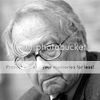Air superiority was not decisively lost until the air battle over Berlin in 1944. In 1943 the first American raids into Germany produced disaster. Airpower was never as important on the Eastern Front either, and even deep into 1944 German armor could usually operate in the open. Doing likewise on the Western Front resulted in rapid annhilation by P-47s or Typhoons.
The number of aircaft available for front line duty began to decrease significantly from August 1943. The Soviets estabished air superiority after Kursk. The operational efficiency of the Luftwaffe was further degraded by shortening the training period for new pilots and an inceasingly severe fual shortage.
From Sept. to Dec. 1943 Germany had concentrated it's day fighter strength in the West, more than 3.5 times the fighters in the East. Total losses in that short period were 3059 fighters.
The Stuka continued to be excellent in service on the Eastern Front as a tank buster, and the Il-2, though better armored, was also slow and vulnerable. Furthermore, new tank buster designs, such as the excellent Hs-29 existed, but the RLM was dominated by tactical bomber boosters, even though at least 7 Stukas could be produced for 1 medium bomber, had higher sortie rates, were more likely to survive any given mission (smaller target, more maneuverable), and were much more effective in the close air support role.
The Hs 29 is irrelevant, total wartime production was only 841, with 411 built in 1943.
On the 26th October 1943, General Ernst Kupler, completed a report saying the JU87 could no longer survive operations. The report was accepted and production run down with 1012 (down 600) in 1944 and none in 1945.
In 1943 the USSR produced 24,041 AFVs, compared to 13,657 in Germany. At Kursk, where the Germans were attacking, both sides recorded a German kill ratio of between 3.6-3.8 Soviet tanks destroyed for every German tank lost. Kursk was also heavily mined and German armor was suffering technical problems
Your figures are misleading and also disputed.
The figures seem to include German Light tanks, such as the panzer 38(t) and Panzer 11 & 111's totalling 8594 units in 1943, but exclude Soviet light tanks. Soviet production including light tanks has been put at 27,300. Some sources have put German tank production that year at 10,747. Panzer 1V, V's and Tigers were less than half total production.
You also seem to be saying that all the German tanks went to the Eastern Front, when clearly a proportion must have gone to the West, Jugolavia, Greece and Italy.
In terms of the replacement of losses the situation is clear in 1943 the Soviets replaced losses and increased their tank force by another 2000 tanks. Germany replaced losses but only managed an increase of 500. The implication that by the summer of 1944, the inbalance in tanks would be so great as to prevent a German victory is inescapable. Even if we disregard the allied tanks in the West.
Taking into account the entire AFV production of the Allies the German position was hopeless.
The poor state of German forces you describe was not really the case until after Operation Bagration, which resulted in the collapse of Army Group centre and the entire Eastern Front. Even after Bagration the German Army retained extensive operational proficiency, as the Battle of the Bulge and the defense of the Seelow Heights both show. And the Panzerwaffe in particular was not heavily affected by Stalingrad. The Soviets suffered heavier losses but none the less continued to increase their operational proficiency.
The deteriation in the the efficiency of the German Army was marked from Stalingrad on. The Panzerwaffe was not untouched by Stalingrad and was certainly badly effected by defeat in N. Africa and the loss of 250,000 prisoners.
What you claim as proof of their "operational proficiency" at the Battle of the Bulge was in fact an example of incompetant tactics that wouldn't have happened in 1941.
Without in any way belittling the the Airbourne troops who defended Bastogne, who were top class and fought brilliantly, under an excellent commander. The defence was aided by some pretty silly tactics. Bastogne was the key with most roads in the Ardennes running through it, I have visited the area and know the ground. The German piecemeal attacks played into the defenders hands, allowing a mobile defence particularly with the artillery. The defenders made full use of the German mistakes, but a competant leadership, given the local superiority would have taken Bastogne.
To get back to the original claim you made before it disapears into the detailed examination. Your claim was;
It was still winnable in 1943. After Stalingrad the Germans called up an additional 800,000 men and had more men in service than ever. Furthermore, Germany didn't even begin total war production until 1944. Had Germany not squandered its offensive power at Kursk they likely would've defeated a Soviet offensive and regained the initiative for a new general offensive in 1944.
If by that you mean that Germany was capable of winning the war in 1944, you are totaly wrong, Victory for Germany was impossible from !943 on.
If you mean that Germany could have mounted an offensive in the East alone in 1944, without Kursk, that is possible, but anything other than a short phyric victory was extemely unlikely and complete victory over the Soviets impossible.
Certainly the statement "it was still winnable in 1943" is wrong. A battle might have been winnable, the war certainly wasn't. Which are you claiming?
senile delinquent.
















 - By Rich
- By Rich